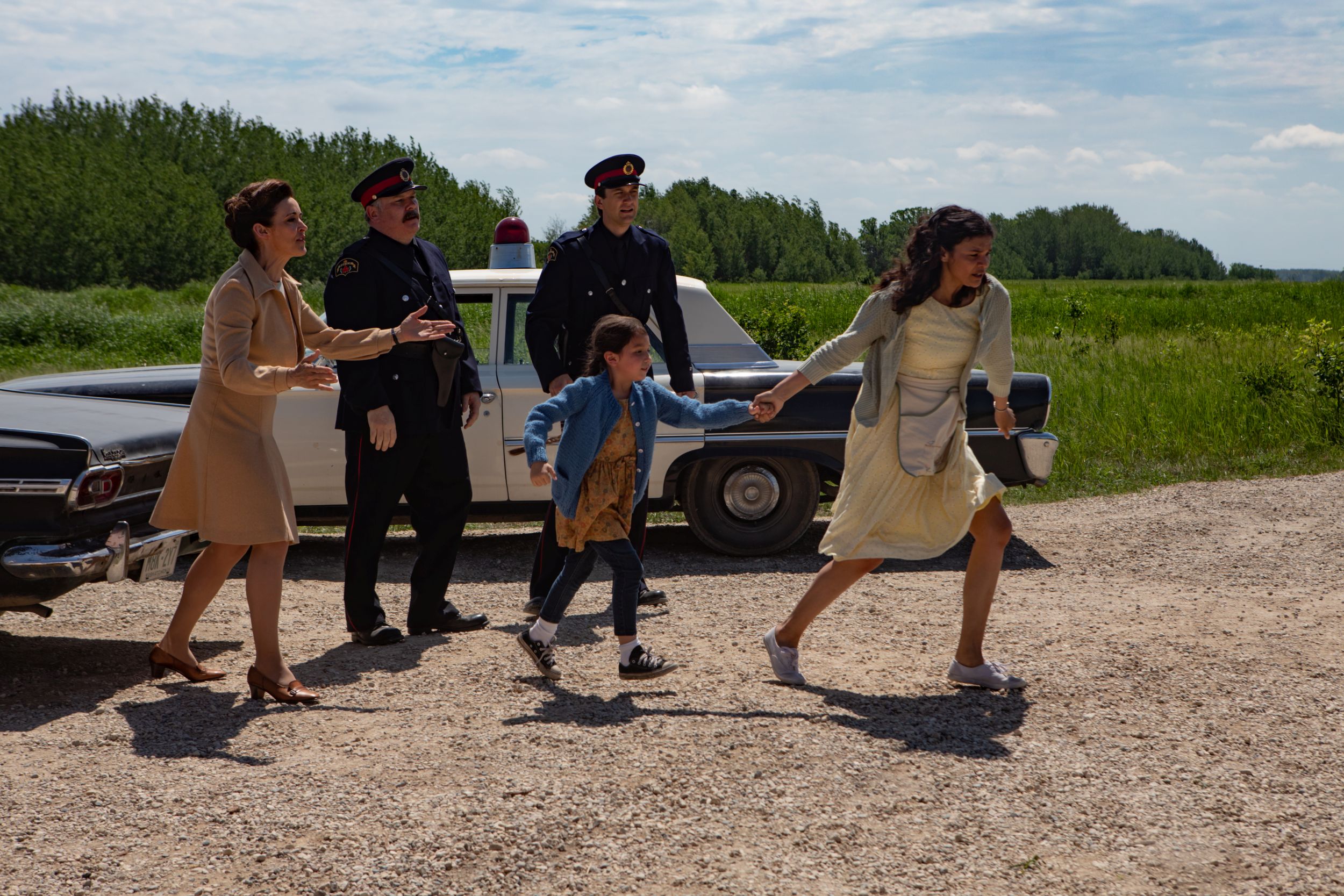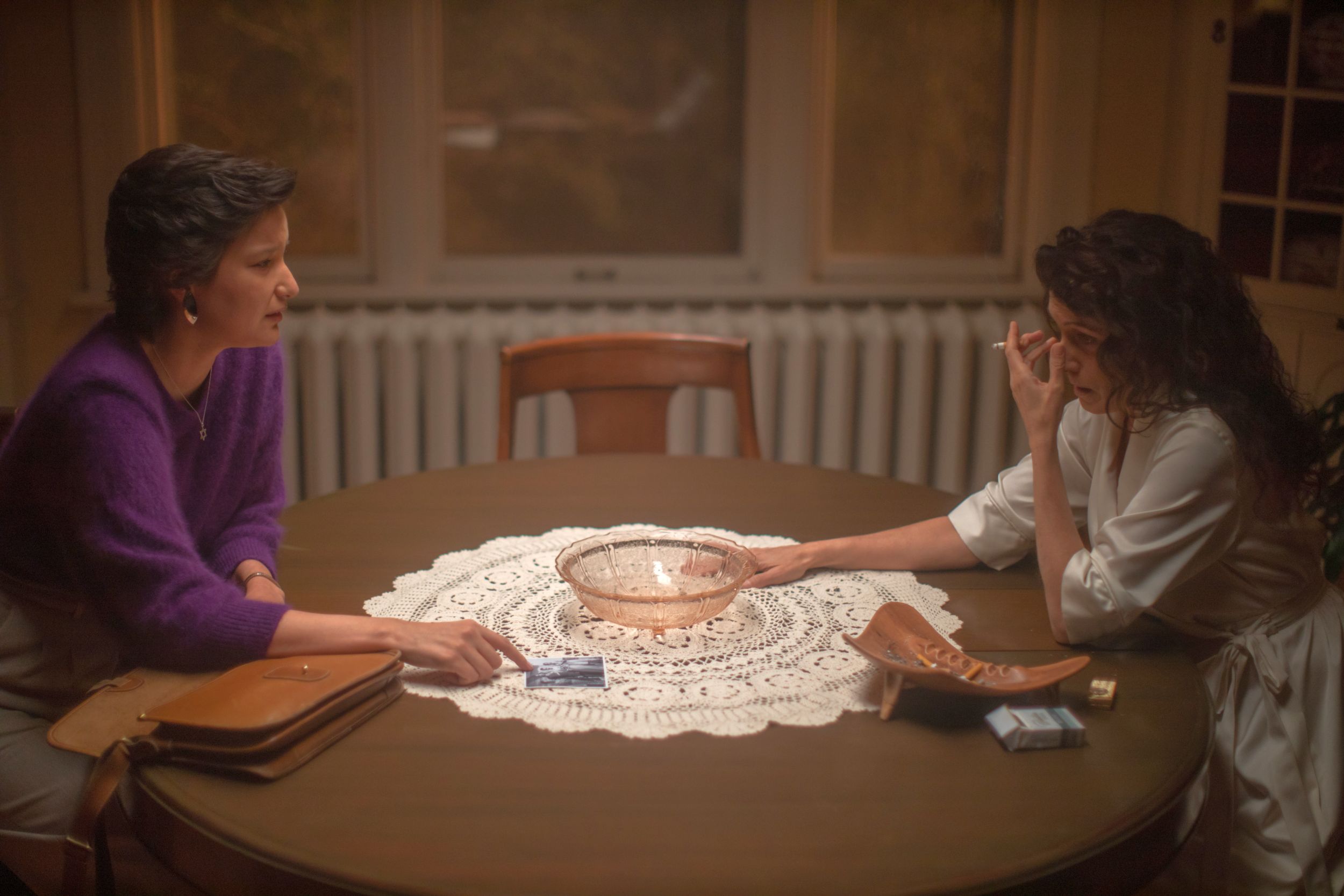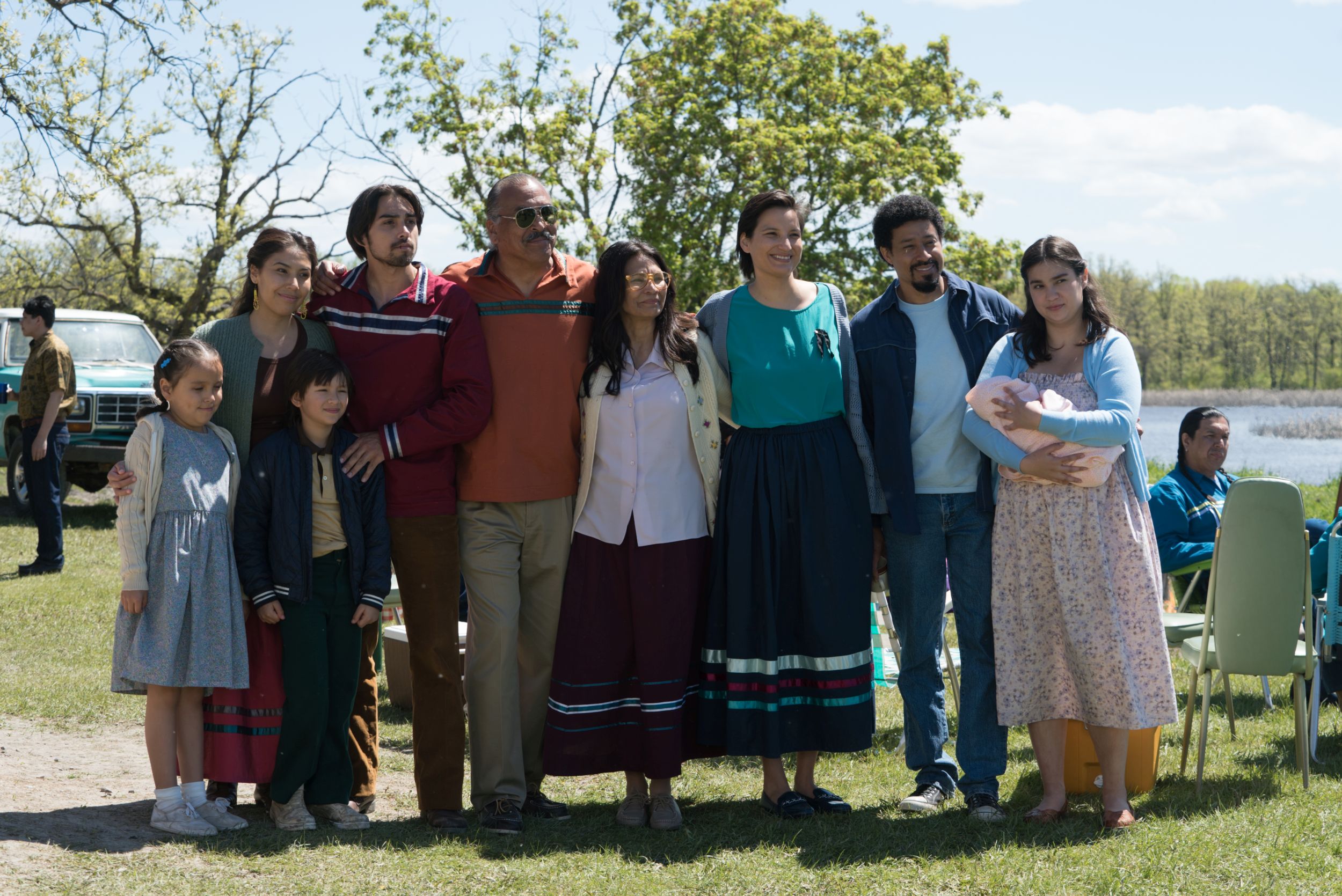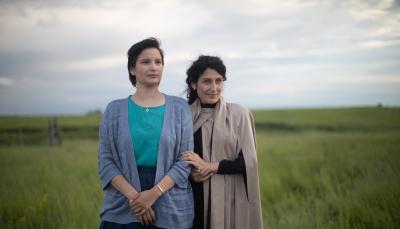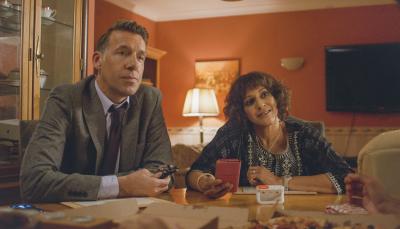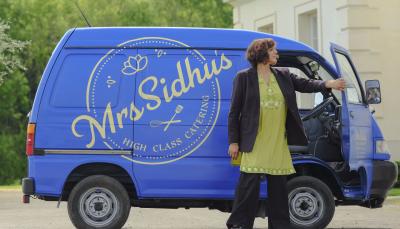'Little Bird' is a Devastating Look at the Sixties Scoop

Darla Contois as Esther in 'Little Bird'
Steve Ackerman
You don’t need me to tell you how awful things are right now. War. Devastating fires and earthquakes. A political landscape that sends shivers down your spine on the daily. If you are looking for TV to provide you with an escape from the world’s terrors, Little Bird is not the series for you. Distressing, harrowing, and heartbreaking, the series, from Jennifer Podemski and Hannah Moscovitch, is a powerful gut punch. It will leave you shattered.
The six-episode series, which premieres on most local PBS stations after airing in Canada in May 2023, tells the story of Bezhig Little Bird (Darla Contois). When she was five years old, Bezhig was taken from her family in Saskatchewan, adopted by a Jewish one in Montreal, and raised as Esther Rosenblum. Set in the 1960s and 1980s, the series opens with a now-grown Esther at her engagement party to David (Rowen Kahn). She overhears her future mother-in-law (Reagan Pasternak) disparaging her for behaving “like a regular Jew.”
“We don’t know anything about her family. Why was she given up for adoption? What was the problem there? . . . Now she’s going to be a mother of her own, and that’s just going to go fine,” she snarks while a friend comforts her that Esther is one of the “good ones.”
The scene is juxtaposed against a young Bezhig (Keris Hope Hill) playing outside her home with her brother while her mother, Patti (Ellyn Jade), tends to her young sister, who is sick. Police officers notice the children, call in child protective services, and a series of horrific events unfold. Things worsen when Patti’s husband, Morris (Osawa Muskwa), returns home to find his wife handcuffed and his children gone. The storytelling device of bouncing between the sad past and the fraught present makes for a distressing watch.
Some scenes were so upsetting that I had to pause my screener and recompose myself. I don’t think you have to be a parent to understand the horror of children being taken from their families on a visceral level. Patti doesn’t know where they are, who is caring for them, or if they are okay. Child protective services only see a home without running water or a refrigerator, not her love for her children.
Esther, whose memories of her childhood before being adopted by Golda Rosenblum (Lisa Edelstein) are hazy, goes on a journey to find her birth family and discover what happened and why she was removed from her home. Her quest takes her across Canada to the child protection agency that placed her. Although Bezhig’s story is fictionalized, it is based on actual events in Canada between the 1960s and the 1980s. Known as the “Sixties Scoop,” Indigenous children were removed from their families, placed in government-owned residential settings, and advertised as available for adoption. Once Bezhig and her brother and sister were removed from their parents’ care, her mother or father could do nothing to get them back. Only their brother Leo (Braeden Clarke), who was out hunting with his father that day, remained with the family.
Bezhig hits wall after wall of people not wanting to give her information. “Why am I not allowed to be in contact with siblings I remember having?” Bezhig wonders while noting the irony that child protective services advertised her in a newspaper, so how concerned with her privacy can they be? Golda, who lost her entire family to the Holocaust when she was 12, believed that adopting Bezhig was the right thing to do. “It was criminal, mom. You are a criminal,” Bezhig yells at her. But Golda is not a criminal, just a woman who longed for a child and thought the child she was adopting was like her, without a family.
The brunt of the responsibility of the series falls to Contois, whose gentle demeanor belies her inner turmoil. Bezhig is polite, quiet, and sweet. But she is also determined. The series unravels as a gripping mystery as Bezhig finds each of her siblings. When tragedy strikes, it is Golda who Bezhig wants there to comfort her. Edelstein is fantastic in the role, and her scenes with Contois are extraordinarily powerful. Even though the circumstances surrounding Bezhig’s adoption are wrong, Golda is still a loving mother.
Little Bird uses an indigenous score and songs to buoy its complex story. The music resonates and invites the viewer into Bezhig’s world. The Indigenous cast is stellar. From Clarke to Imajyn Cardinal as Bezhig’s younger sister, Dora, to Michelle Thrush as Bezhig’s aunt who could not save her nieces and nephews, these lived-in performances bring the story to life. The performances are so authentic you feel like you are in the room with the characters.
While Little Bird has some very clear villains, many, like Golda, thought they were doing the right thing. Bezhig and her family were one of Adele’s (Alanna Bale) first cases. Nearly twenty years later, she is still conflicted, still working at child protective services and still making decisions that aren’t in the best interest of anybody. But, to the series credit, Adele isn’t a one-note villain.
For those wanting to learn more about the Sixties Scoop, PBS is also airing the documentary Coming Home (airing immediately following the premiere), which features the cast and crew of Little Bird and their personal connections to the story. The series ends on a hopeful and cathartic note. But although the Sixties Scoop is in the past, the fate of the indigenous children is very much in the present. Each episode ends with a card that reminds viewers, “Today there are more Indigenous children in custody than ever before” and, therefore, many more Little Birds out there.
Little Bird’s premiere episode premieres on some PBS stations on Thursday, October 12, on PBS at 9 p.m. ET, followed by Coming Home at 10 p.m. ET. All six episodes and the documentary will be available to stream on PBS Passport for members on the same day. New episodes air weekly until the finale on November 16, 2023. As always (and especially with Thursday shows!), check your local listings.

